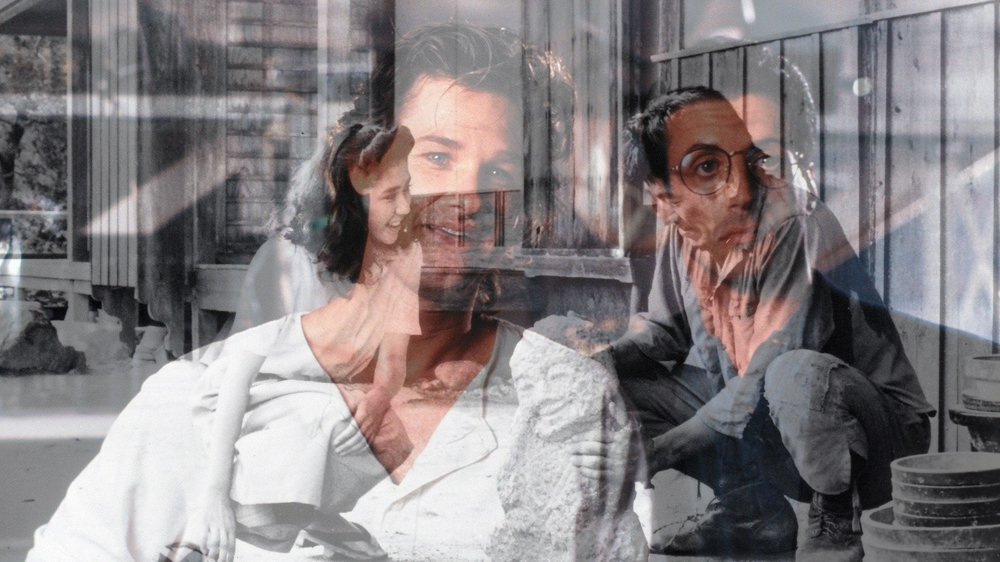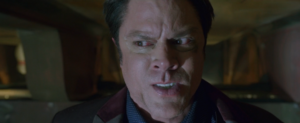
1989 saw the premiere of two films titled Black Rain. One finds Ridley Scott directing Michael Douglas as a New York City cop who finds himself on extradition assignment in Japan. The other is Shohei Imamura’s study of a Japanese community in the wake of the atomic bombing of Hiroshima. This edition of the Dim the House Lights 1989 Tournament of Films will not be measuring these two films against one another. Instead, Imamura’s film faces an opponent with fewer apparent similarities: Andrei Konchalovsky’s (and Albert Magnoli’s) Tango and Cash. This match-up is the cinematic equivalent of a welterweight stepping in with a heavyweight, though who’s who depends on your metric. In terms of box office, Tango and Cash was among the 25 highest grossing films in its year. In terms of quality and legacy, well, Shohei Imamura has twice been awarded the Palme d’Or while the true auteur behind Tango and Cash is Sylvester Stallone, in the middle of his roughest ideological period. Yet this ostensible mismatch between films obscures a surprising thematic similarity as both films dig at the psychology of the communities they are exploring.
Black Rain depicts the survivors of the bombing of Hiroshima, some who were there when the bomb dropped – primary victims -and some, like Yasuko, who came to Hiroshima in the aftermath, five years after “the flash.” Though the society at large hosts anti-nuclear protests and ostensibly works towards an end to the nightmare, those actually affected by the bomb are ostracized. Yasuko’s marriage arrangements keep falling through as the families of prospective fiancés believe her to be ill from walking around Hiroshima with her aunt Shigeko and uncle Shigematsu, primary blast survivors with whom she lives, after the bomb. Yuichi, the veteran next door, suffers from psychotic breaks and war flashbacks whenever he hears an engine pass by. Oncoming drivers react by kicking and berating him while his family and neighbors attempt to pull him away, playing into his delusion to convince Yuichi he got the enemy. Imamura suggests that the nation doesn’t much care for the victims of the bomb they so vehemently oppose, marginalizing them in favor of a rhetoric against future occurrences – on the radio Truman admits willingness to drop the atom bomb on Korea.
Yet Imamura, while empathetic towards his characters – never more clear than in depictions of the blast and its immediate aftermath, where brother can’t recognize brother, covered in muck, severely injured but alive – attacks the obstinate attitudes of victims like Shigematsu who believes, or at least professes, that Yasuko, while exposed to the poison black rain of petroleum, is perfectly healthy. And though he and his wife were in Hiroshima, he’s not much worried about their own health. The stance is hardly unbelievable, as this is 1950 and knowledge on the effects of radiation was limited. Worse, however, is the community response when survivors begin to die in rapid succession, starting with several secondary flash victims. Death is chalked up to a loss of the will to live and blame for sickness is turned inwards. Six years after Black Rain Todd Haynes would explore this response to illness in Safe, exploring an ostracized, sick community whose recourse is to search for a reason and find it within themselves. Haynes finds this version of healing suspect and perhaps more harmful than the outside world. Imamura’s film does much the same as when Yasuko breaks off an engagement and begins to show symptoms, with surrounding characters positing that she’s “lost the will to live.” Responding in this way, Shigematsu is able to forget about his own illness and impending death by equating longevity with willpower. This obstinate lie serves no one, as Imamura tells it, and the film’s main villain reveals itself not to be the bomb but prevailing attitudes towards it.
Tango and Cash similarly explores the nasty ideologies of its national setting, but instead of indictment it plays like a celebration. When we first meet Tango, we’re given Sylvester Stallone in a too stiff suit, staring down a tanker with only a revolver. He’s a badass and if you don’t get that from his action maybe slyly quipping “Rambo is a pussy” will do the trick. Earlier flavors of Stallone, especially the classic Rocky variety, were underdogs, heroes on a track called the American dream. Ray Tango is at the last stop on that track, the extreme extrapolation of the American dream that forms a Republican’s wet dream. He’s independently wealthy, making his money playing the stock market, and works as a cop because he likes the action. When you’ve reached the ultimate goal of success in America, you forcefully subjugate others as a hobby.
Gabriel Cash is, according to this film, the opposite side of America. He’s brash, sports long hair, loves guns and pizza, and children love him – and why not? Everybody loves Kurt Russell, even when he tortures a perp in a police station bathroom. Cash is the blue collar, red blooded, white xenophobic dude cop to Tango’s stuffy, musclebound investor cop. He’s the dream of American exceptionalism, unpretentious and sloppy but still the best thing around. Early on he commandeers the vehicle of a Russian man, who continually makes a fool of himself – whether this was Konchalovsky mocking his birth nation or his replacement, who wanted to make a funnier movie, mocking Konchalovsky escapes me – later he insults a villain for being British (or more specifically an immigrant) and in between insists, correctly it turns out, that a Chinese suspect speaks English despite his cries to the contrary. Cash is the fiery counterpart to Tango’s cool imperialism and by the time credits roll, Tango and Cash come to realize that they’re not so different from one another, just two sides of the same asshole coin.
The film celebrates its exceptionally American characters by flinging them into an action plot based almost entirely in personal vendetta taking a break only for a tepid adventure into the masculine homosocial. After a mysterious (and eccentric!) villain frames Tango and Cash for murder, for the sole purpose of getting them off the streets so he can easily commit crimes, the pair find themselves in a prison (literally on fire the whole time) filled with people they themselves put away. The prisoners make the exact kind of threats you’d expect in this sort of situation and Tango and Cash fire back with the same. This prison detour features the most interesting scene in the film, as Tango and Cash shower together, remark on the size of their dicks and get real close. Then Cash bends down to pick up the soap and the enjoyably homoerotic scene becomes yet another dull, offensive joke in a series. Afterwards they escape and shoot bad guys, while forming a close friendship that ends in a high-five. America.
Eschewing thematic concerns in favor of filmmaking technique for a moment, Black Rain bears the mark of a master director in communication with the tradition of his national cinema. Imamura, evoking much of great Japanese cinema, fills the frame with objects to surround and obscure his subjects, be it in architecture or nature. Survivors of the bomb rest and converse in a bamboo forest, long stalks compartmentalizing their bodies in 1945 in the same way that vertical wooden bars in a home entrap Yasuko’s face in 1950. Most spectacularly, Imamura finds his film’s most cinematic moment in borrowing from theater, in the same way that Kurosawa’s cinema was often at its best when it studied Noh. Yasuko sits with Yuichi as he enters into a monologue about his illness and suddenly a spotlight shines on him as he throws himself against the walls and scurries around the room, lost in the fear in his head. For a moment, Black Rain leaves the confines of its grounded space and illuminates Yuichi as the only character who recognizes and confronts his condition without internalizing the blame.
Compared to Imamura’s controlled mise-en-scène, Tango and Cash is a mess of ideas that very rarely cohere in the frame and filmmaking that never excites, despite the explosions. This is hardly a surprise considering this is a film directed by several people, with no one claiming demonstrative authorship more than anyone else. It’s a serviceable 80s action vehicle in design and look, but little more. The only image that sticks with you is Sylvester Stallone in a suit, but only because he looks uncomfortable.
The winner: Black Rain
—
Both Black Rain and Tango and Cash are in print and available for purchase on Amazon and for rental at your local video store (presumably), while only Tango and Cash is available through Netflix.
Black Rain; directed by Shôhei Imamura; written by Shôhei Imamura and Toshirô Ishidô; based on the novel Black Rain by Masuji Ibuse; starring Yoshiko Tanaka, Kazuo Kitamura, Etsuko Ichihara, and Shôichi Ozara; 123 minutes.
Tango and Cash; directed by Andrei Konchalovsky and Albert Magnoli; written by Randy Feldman; starring Sylvester Stallone, Kurt Russell, Teri Hatcher, Jack Palance, Brion James, and James Hong; 104 minutes.
Like the Tournament of Films? Check out our introductory post here, and check out previous matches here.



 Derek
Derek
 Isabelle
Isabelle